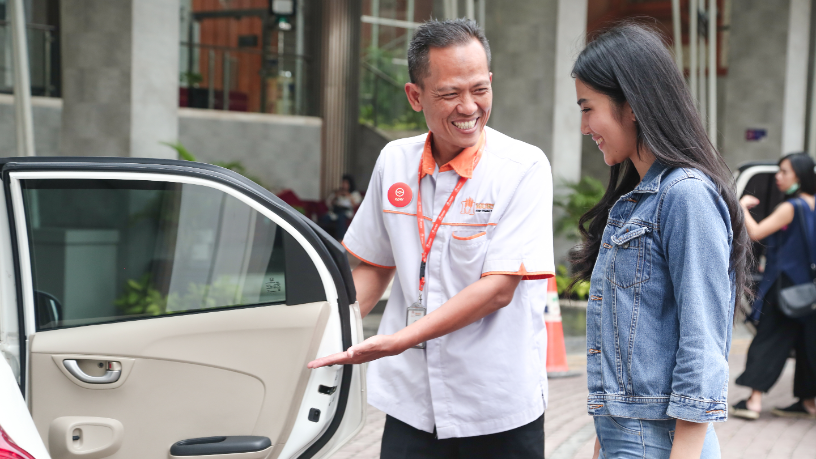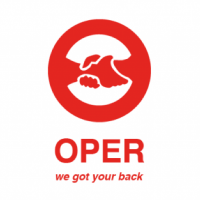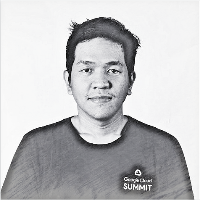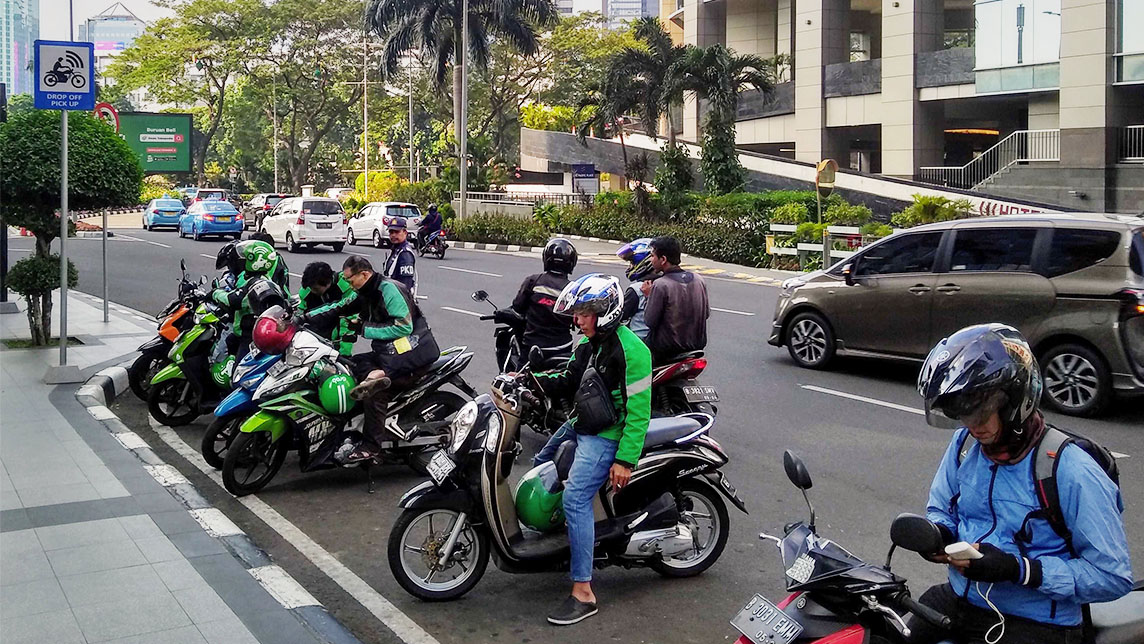Robin Lazendra and Jaro Petang came up with the idea of on-demand chauffeurs after an exhausting, long drive at the end of a day's work, a problem faced by many locals grappling with stressful traffic jams in Jakarta.
“Once we reached [our destination], we started thinking about how nice it'd be if we could hire someone else to drive our car instead. It'd save us having to drive through the traffic jams,” Petang said.
There was the option of using taxis or ride-hailing services like Grab or Gojek. But many Jakarta residents still prefer to ride in their own cars. This shows just how difficult it is to change people's habits, even in the face of necessity and urgency. That’s where Oper, the startup created by Lazendra and Petang in 2016, comes in.
“Simply put, when we use ride-sharing services, we're using the driver's vehicle and not ours. We can feel the difference. It doesn't give us the familiar comfort that we're used to in our own cars," Lazendra, CEO of Oper, told CompassList.
Many Indonesians in urban areas are also likely to own cars, and would find it a waste of money to pay for ride-sharing services instead of using their own vehicles.
Oper is also a more economical option than hiring personal chauffeurs, the norm for many well-off households in Indonesia, said Petang, Oper's Chief Brand Officer. Its drivers are available on-demand and can be booked via the Oper app for four, eight or even 12 hours. Oper charges IDR 150,000 for a four-hour booking, IDR 200,000 for eight hours and IDR 300,000 for 12 hours. Customers don't have to pay for staff perks like meals and “cigarette money” as they do when hiring personal chauffeurs.
Profitable business model
Like China's Didi Chauffeur and other designated-driver services platforms, Oper, short for “online helper” and which also means “passing something along” in Indonesian, matches clients in real time to available drivers in the vicinity. Oper drivers can also take care of time-consuming chores like taking the client's vehicle for garage repairs.
In 2019, the company launched Oper Task to target higher-margin customers such as private companies and state-owned enterprises. One of Oper's first corporate clients was construction company PT Jaya Konstruksi Manggala Pratama. Today, Oper has a fleet of 2,100 drivers nationwide. The expansion over the three-year period may seem slower than many ride-hailing startups that seek exponential growth to capture the biggest market share as quickly as possible.
Oper focuses on quality over quantity, Petang explained. Every driver accepted by Oper has at least two years of driving experience for both manual and automatic gear vehicles. They also have to undergo rigorous tests, including a psychological evaluation. In May, Oper started sourcing drivers from an established agency PT Mukti Abadi Sadaya (OTO Group) that guarantees the dependability and safety of its drivers. “Our database includes their background checks and information including home addresses,” he added.
Improving the lives of our drivers is also a focus. “With ride-sharing services, the drivers have to own their own vehicles. By working with us, they only need the will to work, to make a living. They are happy," he said.
Mukodimin, a driver who has worked for a year with Oper, agreed. “I've been making about IDR 4m monthly,” without having to pay for any vehicle loans, he said.
Scaling for success
The co-founders believe that taking the time to find the best routes to recruit reliable Oper drivers is vital for sustainable growth. Setting the right price range for services is also the key to success for bootstrapped startups like Oper. The biggest challenge for the company is to introduce the novel concept of on-demand driving services, to build trust with customers and car-owners.
For example, many Indonesians are now familiar with using ride-hailing services like Gojek for daily tasks such as food deliveries and courier services. Motorcycle-taxi rides are also faster due to traffic jams in urban areas. It's clear that on-demand transport services have become a survival necessity for many people, especially those in congested cities.
Like Gojek, Oper aims to expand into other services to become a one-stop “online helper” for the daily needs of locals. “The goal is to become the Indonesian market leader in this field,” said Petang. “We're the first to establish this type of driver-on-demand service here. Eventually, there'll be copycats. But that'll motivate us to innovate and develop even better products.”
Traffic jams are here to stay, getting worse every day, even though more public transport options like the MRT are being made available. A research index for 2015 by motor oil company Castrol dubbed the Indonesian capital as the worst city in the world for traffic jams. A TomTom Traffic Index released in June 2019 declared an improvement when Jakarta was ranked the seventh most congested city in the world, instead of fourth place in 2017.
For many on the streets, there's no difference. If you can't beat the traffic, you just have to find ways to cope with it.















